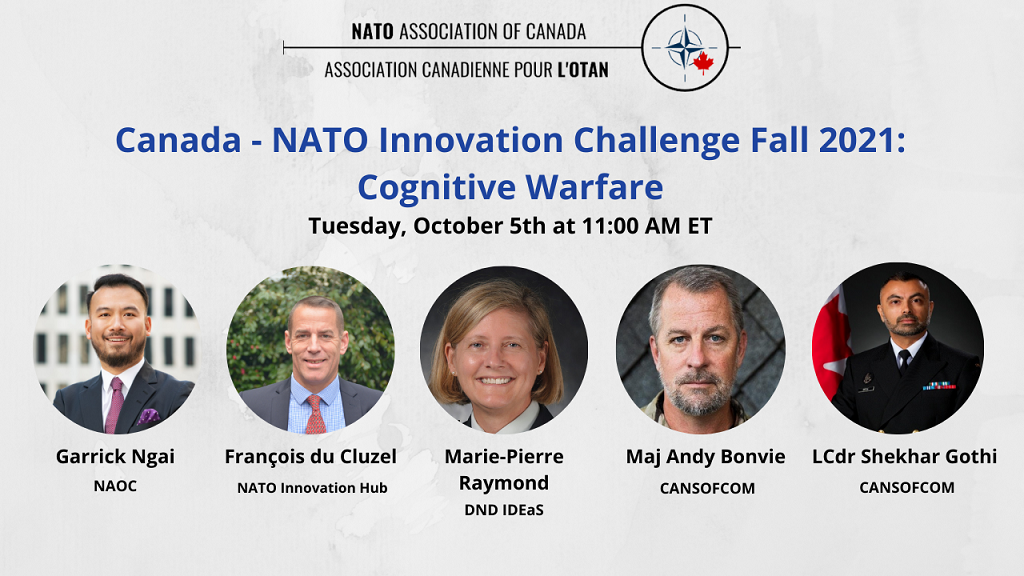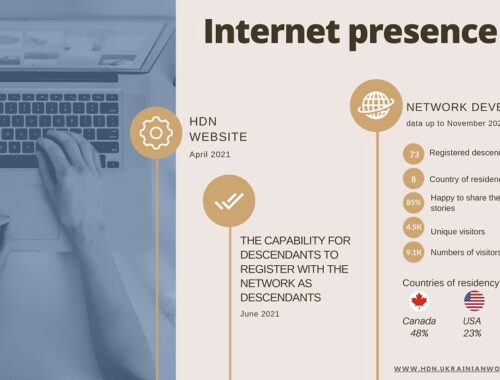
Canada to host NATO Innovation Challenge on cognitive warfare
The North Atlantic Treaty Organization (NATO) is tackling a new domain of conflict: cognitive warfare.
“Cognitive warfare is a new concept that starts in the information sphere, that is a kind of hybrid warfare that our adversaries utilize in order to weaken our democracies,” Francois du Cluzel, NATO Innovation Hub manager, said during an informational webinar on October 5.
“It starts with hyper-connectivity, it starts with information because information is the fuel of cognitive warfare,” du Cluzel said. “But it goes way beyond solely information because it’s all about leveraging the big data. It is extremely easy to leverage those data in order to better know you and use that knowledge to change the way you think.”
NATO had divided war into five different operational domains: air, land, sea, space, and cyber. But with its development of cognitive warfare strategies, the military alliance is discussing a new, sixth level: the “human domain.”
In efforts to generate solutions to the challenges posed by this emerging threat, Canada will host the Fall 2021 NATO Innovation Challenge on 30 November 2021. The NATO Association of Canada, an advocacy group with a mission to promote NATO, has mobilized to support this Innovation Challenge, working closely with military contractors to attract the private sector to invest in further research on behalf of NATO.
“With this challenge, we are seeking innovative tools, processes and measures to identify, assess and protect against attacks on the connective domain of NATO forces and their allies,” said LCol (Ret’d) Marie-Pierre Raymond during the webinar. Raymond is Defence Scientist and Innovation Portfolio Manager for the CAF Innovation for Defence Excellence and Security (IDEaS) Program.
Areas of focus include but are not limited to identification of when NATO forces and/or allies are under a cognitive attack, verification of the scale and the nature of the attack, quantification and the level of success of the attack is. This challenge is calling for solutions that will support NATO’s human domain and jumpstart the development of a condition ecosystem within the Alliance that will support the development of new applications, new systems, new tools and concepts leading to concrete action in the cognitive domain.
“We need to identify those present threats that are out there now, and then start to anticipate those future threats that exist in these environments that we’re going to be operating,” said Major Andy Bonvie. Maj Bonvie currently serves as the commanding officer for C Squadron at the Canadian Special Operations Training Centre.
The AI Challenge is a Shark Tank-like competition, in which competitors from 30 NATO member countries pitch solutions to solve an operational challenge. This topic centers around cognitive warfare, a new domain of competition.
“What has been observed in the last five years is that while some adversaries have strategies to avoid a kinetic confrontation with NATO, they are now using hybrid means as a way to destabilize and arm adversaries,” said LCol Raymond.
Adversarial attempts to manipulate human behaviour will present an enduring challenge to Allied nations’ defence and security. This emerging threat of modern warfare goes beyond controlling the flow of information. Cognitive warfare seeks to change not only what people think, but also how they act. Attacks against the cognitive domain involve the integration of cyber, disinformation/misinformation, psychological, and social-engineering capabilities. The new operating environment for decision-makers engages their ability to both detect and respond to attacks on the cognitive domain.
Maj Bonvie warned that we need to become more aware of how our actions can be willfully or mistakenly misinterpreted and used to change not only what people think, but how they act.
“Cognitive warfare is a new type of hybrid warfare for us,” Major Bonvie said. “And it means that we need to look at the traditional thresholds of conflict, we need to understand these attacks better and adjust our actions and our training accordingly to be able to operate in these different environments.”
NATO Innovation Challenge is organized by Canadian Special Operations Forces Command (CANSOFCOM), Innovation for Defence Excellence and Security (IDEaS) and the NATO Allied Command Transformation (ACT) iHub. Innovators will have the opportunity to familiarize themselves with the concept of Cognitive Warfare as well as the Innovation Challenge’s eligibility requirements, application process and timeline.
This article is written under the Local Journalism Initiative agreement
Kateryna Bandura for New Pathway – Ukrainian News
Follow me on social media!You May Also Like

Former political prisoner shares his experience in Russian prison in Donetsk
October 30, 2021
Ukrainian art community launches an anonymous online auction
October 30, 2021

